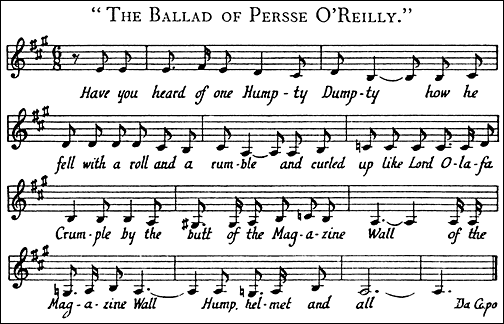Perched on high stools by the bar, hats shoved back, at the tables calling for more bread no charge, swilling, wolfing gobfuls of sloppy food, their eyes bulging, wiping wetted moustaches...A man with an infant's saucestained napkin tucked round him shovelled gurgling soup down his gullet. A man spitting back on his plate: halfmasticated gristle: gums: no teeth to chewchewchew it...Couldn't eat a morsel here. (Ulysses, )And of course the famous 'all food is dead' section:
An obese grey rat toddled along the side of the crypt, moving the pebbles...One of those chaps would make short work of a fellow. Pick the bones clean no matter who it was. Ordinary meat for them. A corpse is meat gone bad. Well and what's cheese? Corpse of milk...Saltwhite crumbling mush of corpse: smell, taste like raw white turnips. (Ulysses, )Interestingly, he continues on to make a case against vegetarianism ("only weggebobbles and fruit") but I'm going to spare you the full, visceral details of his argument.
Yet post-Ulysses, some brave souls have sought to reclaim Joycean-inspired food and drink. Of course, it helps that Joyce said a few oft-quoted things about alcohol, making drinks easy to Joycify:
"What is better than to sit at the table at the end of the day and drink wine with friends, or substitutes for friends?"
"Ireland sober is Ireland stiff."In Ulysses, he also used a modified version of Oliver Gogarty's 1904 poem, "The Song of the Cheerful (but Slightly Sarcastic) Jesus" (retitled "The Ballad of Joking Jesus"), which features some excellent wine jokes:
If anyone thinks that I amn't divineMany pubs have boldly named themselves after him, no doubt more in reference to his Irishness and famousness than the content of his food-related work:
He'll get no free drinks when I'm making the wine
But have to drink water and wish it were plain
That I make when the wine becomes water again
Baltimore
Georgia
Paris
In this same vein, I recently came across a delicious looking James Joyce Cocktail with Irish whiskey, sweet vermouth, cointreau and lime. Wonderful!

Also, one can always just pick up a Guinness and claim homage...as I have done by baking this fabulous Chocolate Stout Cake, from Cooking With Sin. Notice how it looks like a dark stout and its head?
Yet overall, Joycean food has arguably fared less well. Notably, the closest relation of Joyce to food I have encountered is: in honour of the 'Bloom's cheese sandwich' section of Ulysses, a fellow student once threatened to gift my professor with casu marzu cheese (Sardinian sheep's cheese, infested with and processed through maggots). Between this and Ulysses itself, 'lunch with Joyce' still sounds like a horror. Yet while Joyce didn't always appear favourable to the whole process of eating, I really wouldn't say no to Bloom's eventual lunch, a gorgonzola sandwich, "good glass of burgundy" and a "nice salad, cool as a cucumber".






